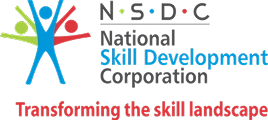Course Design By
Nasscom & Wipro
+ More Lessons
Course Design By

Nasscom & Wipro
Course Offered By

Croma Campus

Stories
success
inspiration


career upgrad


career upgrad


career upgrad


career upgrad
12-Jul-2025*
14-Jul-2025*
09-Jul-2025*
12-Jul-2025*
14-Jul-2025*
09-Jul-2025*

You will get certificate after
completion of program

You will get certificate after
completion of program

You will get certificate after
completion of program
in Collaboration with






Empowering Learning Through Real Experiences and Innovation

we train you to get hired.

Phone (For Voice Call):
+91-971 152 6942WhatsApp (For Call & Chat):
+91-971 152 6942Get a peek through the entire curriculum designed that ensures Placement Guidance
Course Design By


Course Offered By

Ready to streamline Your Process? Submit Your batch request today!
You can complete the web development certification training program in 30 to 45 days.
A skilled and competent web developer will train you during the duration of the course.
As a web developer, you can earn around ₹ 3,00,000 to ₹ 12,00,000 PA
As a web developer, you can earn around $64,000 in the US and £25,000 in the UK.

FOR QUERIES, FEEDBACK OR ASSISTANCE
Best of support with us
For Voice Call
+91-971 152 6942For Whatsapp Call & Chat
+91-9711526942